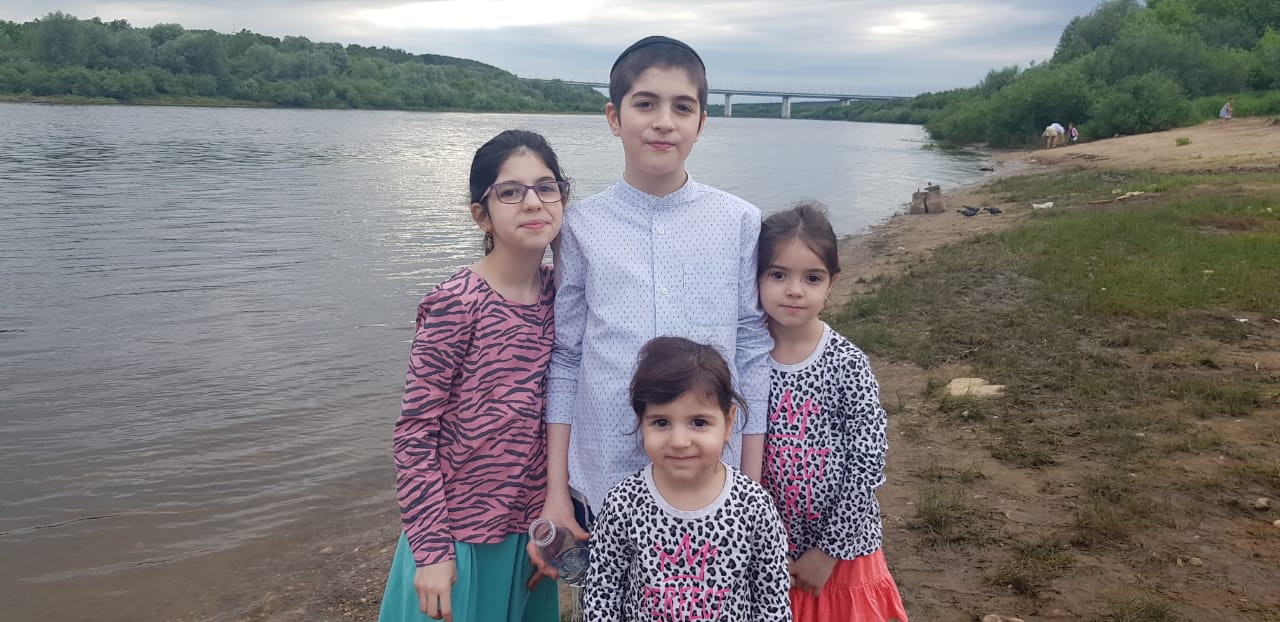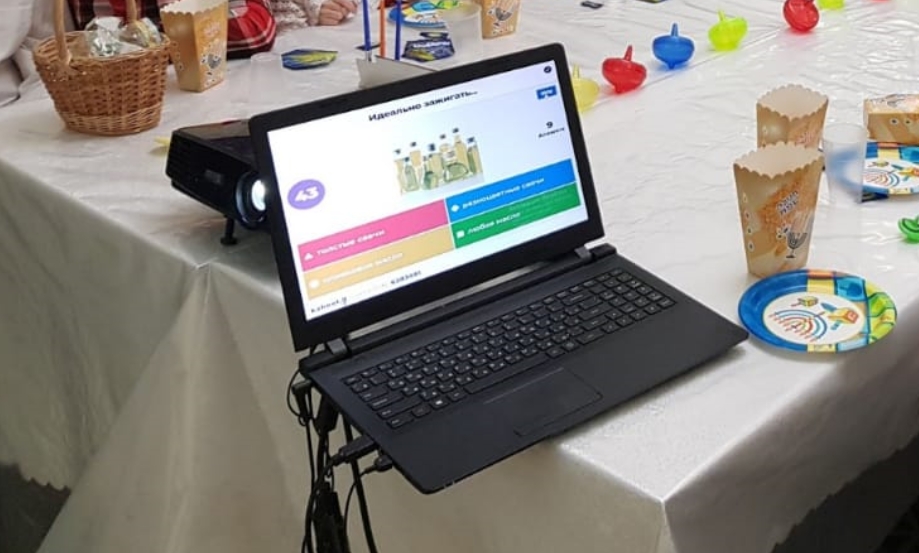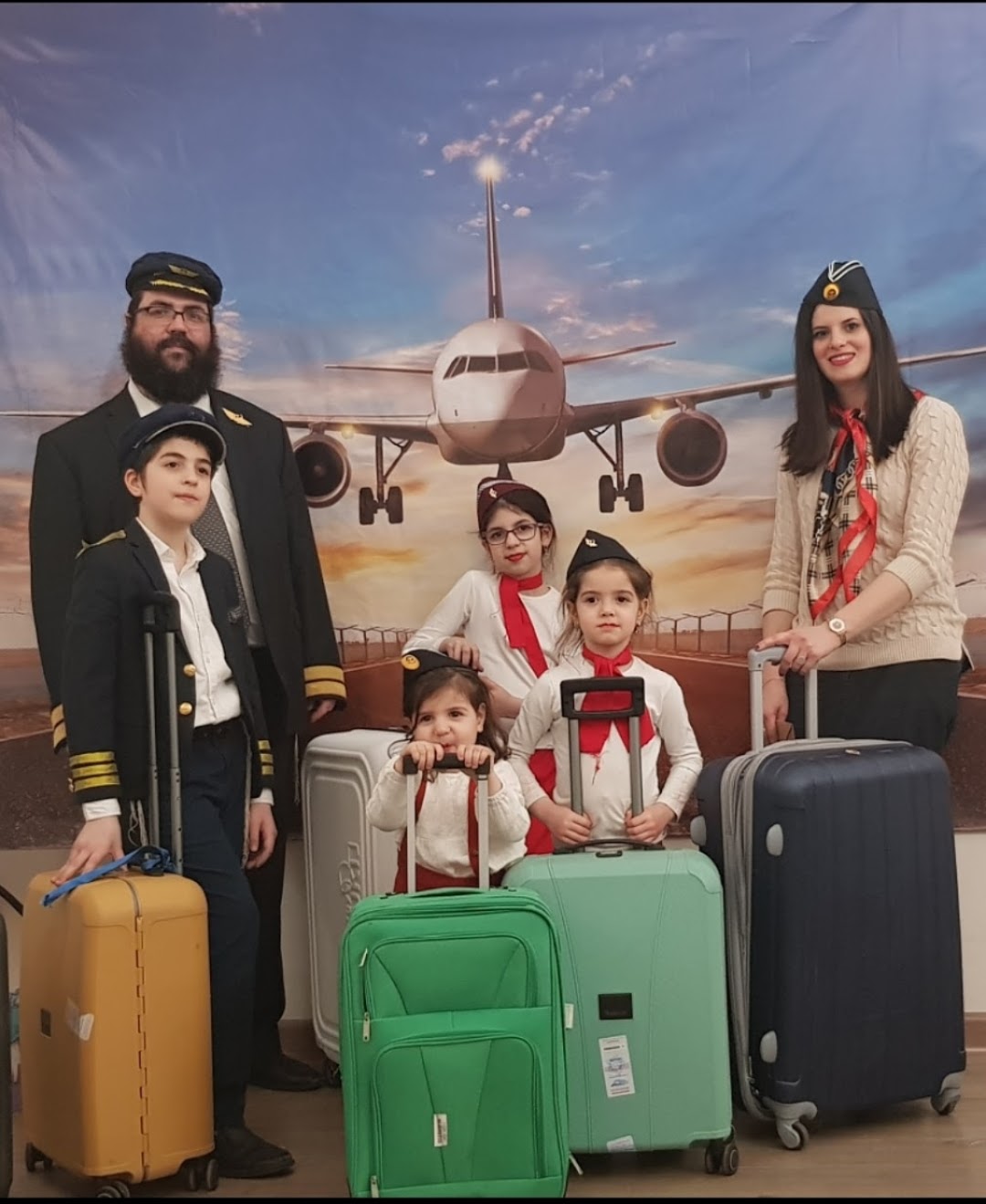For the Woman
Life on Shlichut in Russia: How Naama Oishie Builds Jewish Community in Remote Kaluga
A Chabad mother shares the real story behind Jewish life, resilience, and leadership abroad
 (Pictured: Naama Oishi)
(Pictured: Naama Oishi)Naama Oishie, mother of four, is a Chabad emissary in the city of Kaluga, Russia. Together with her husband, she leads and nurtures a Jewish community in a place where almost no Jewish infrastructure exists.
Raised in the Har Nof neighborhood of Jerusalem in a Chabad-Chassidic family — fifth of fourteen children, Naama studied middle-school education and communications. Today, her life looks entirely different from the one she imagined as a young woman.
The Moment a Dream Was Born
What makes a young, newly married woman with small children leave Israel for a remote foreign country with barely a trace of Jewish life?
Naama traces her dream back to seminary: “As part of the program, second-year students would go on a six-month shlichus abroad. In my year, the missions were mostly in former Soviet countries. I was sent to assist in a children’s home in Moscow. It was the first time I lived the day-to-day reality of shlichut — every hour, every need, every challenge. Before that, I had helped with camps and various Chabad houses in Israel, but this was different. During that mission, I realized that this is the life I want after marriage.”
Did you choose Kaluga, or was the assignment given to you?
“Every couple actively seeks out the location and style of shlichus that fits them — whether in Israel or abroad, working with local Jews, Israelis, students, backpackers, and so on.
“When we searched, we specifically wanted Russia or Ukraine. We’d both done shlichus in that region before marriage, so we were already familiar with the mentality, language, and culture. I wouldn’t want to trade it for anywhere else.”
 Oishi family children by the Oka River crossing the city of Kaluga
Oishi family children by the Oka River crossing the city of KalugaWhat is the hardest part of maintaining Jewish life in a place with almost no Jewish infrastructure?
Naama laughs gently: “It takes me a moment to remember everything — because the challenges are literally woven into our entire day.”
Food and Basic Necessities
“Kosher products are extremely limited — many basic foods simply don’t exist. No kosher restaurants, no snacks, no ‘extras’ or even bread, pitas, and baked goods. If we want challah, cake, or pastries, I bake everything myself. There is no ordering pizza or running out in the morning for a pastry.”
Education and Social Distance
“The children learn online year-round, far from classmates and peers. Sometimes they meet their class only once a year — sometimes not even that.
“The distance from family, friends, weddings, celebrations, is not easy emotionally.”
Shlichut Responsibilities
“And of course, there is the constant mission: reaching every Jew in the city, bringing them to events, prayers, and programs. It’s a deep responsibility.”
How do the children manage remote learning? Don’t they miss real friends?
“They attend a virtual school called Or Menachem, designed for children of shluchim around the world. They learn online about three hours every morning, each in a separate room with headphones and their own computer.
“This is their normal — unlike during COVID when distance learning was a shock, here they were born into it.”
“They have their virtual classmates, plus the local community kids they meet during Sunday activities or Shabbat. Yes, real in-person friendships are missed — but today’s communication tools make connection easier.”

How did COVID-19 affect the community and the Chabad house?
“Corona didn’t skip Russia. It was incredibly difficult. Managing a synagogue and community during a pandemic is an enormous responsibility. There were weeks I couldn’t sleep, worrying about what to do.
“There were periods when we shut down completely — no prayers, no events. Unlike Israel, where people prayed in yards or balconies — here, when we closed, that meant nothing.”
Holiday Kits and Emotional Support
“For Pesach, we prepared Seder kits for 60 people, including Haggadot, instructions, symbolic foods, matzah, and wine. For Shabbat we delivered kits with challahs, wine, cakes, salads, and printed guides. All homemade, of course — because nothing kosher can be bought here.
“People were deeply moved by the packages. It drew them closer and made them want to learn more.”
 The Oishi family on the last Purim celebrated with a flight concept
The Oishi family on the last Purim celebrated with a flight conceptWhat is your official role?
“It depends on the day, hour, and date. But the foundation is this: I’m a mother of four. Three learn online at home. My toddler has no Jewish preschool, so I make activities for her myself.
Her weekly schedule includes:
Sunday: Two children’s clubs (ages 6–12, and 12–17)
Tuesday: Women’s Torah class in Russian
Thursday–Friday: Cooking and baking for Shabbat
Shabbat: Hosting community meals — Friday night at home, Shabbat day in the synagogue
Monthly: Women’s events and senior citizen programs
Year-Round: Organizing all community holidays, bar/bat mitzvahs, celebrations, and events
“And at night,” she adds, “I work online writing and producing children’s activities for the Morasha department of the Conference of European Rabbis.”
Balancing Family and Mission
“It requires constant prioritizing and accepting that I am not Superwoman. Some weeks I sacrifice work for the children; other times they know Mommy is extra busy, especially before holidays. After each holiday, we take one or two days just for our family to reconnect.”

